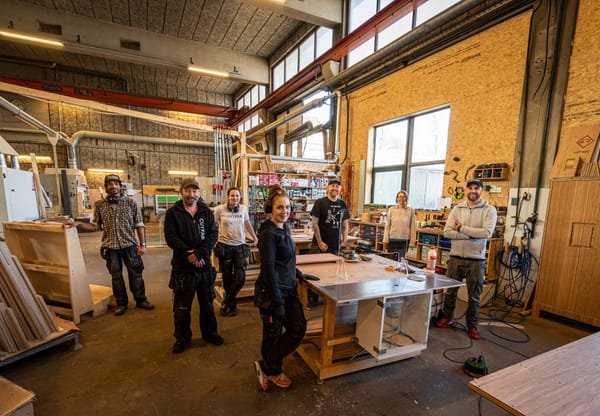AI Agent Frameworks for Full Stack App Development & Software Engineering
How AI Agent Frameworks like Databutton and Devin pushing the LLMs limits

An LLM is a language model, which is not an agent as it has no goal, but it can be used as a component of an intelligent agent.
With the ongoing improvements in large language models (LLMs) — we are constantly finding new ways to integrate them into comprehensive workflows.
One of the top uses for LLMs is generating and debugging complex code, a task that has spurred the evolution of code-centric LLMs from their more general generative predecessors.

However, because all LLMs response are stochastic in nature — setting up a full end-to-end workflow around them is super tricky. For instance, managing a code base, fixing all the underlying issues, or even building a full-stack web app from the scratch, it takes an insane amount of engineering.
In such cases, AI Agents and a solid foundational framework around it, will likely take the abilities of LLMs to whole new level.
A tweet from Andrew Ng further elaborates on this, nicely highlighting the potential of these advanced frameworks —
… Instead of having an LLM generate its final output directly, an agentic workflow prompts the LLM multiple times, giving it opportunities to build step by step to higher-quality output.
Agentic Framework as a Solution
Building a product around engineering AI agents is an immensely challenging yet rewarding tasks — involving a synchronized crew of AI Agents that can plan, debug, execute, and solve problems when narrated in human language.
Databutton, the world’s first fully AI app developer
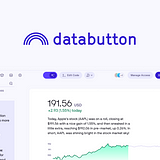
The Databutton AI app developer specializes in building full-stack web app MVPs, especially when the apps are AI-driven themselves. Customers communicate with Databutton’s AI app developer in a chat interface within the Databutton workspace.
Databutton AI builder is built on this core principle — agents working in a sync and symbiotically. Backend in Python ; Frontend in React.
The secret to success here is all about how you ask for what you want (aka prompting).
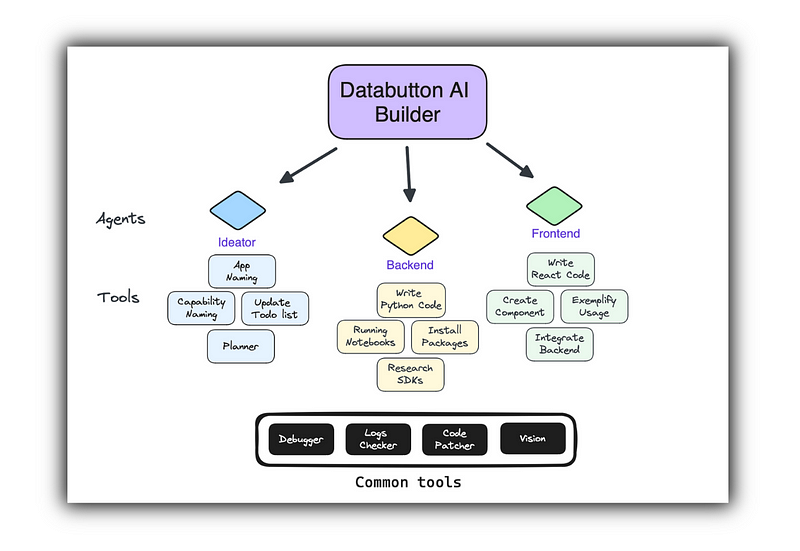
Watch key workflows in this short video. Or watch live app demo building in this playlist — https://www.youtube.com/watch?v=rwJNtOQVaRY&list=PLqQrRCH56DH_oJOVTV5mKN2GQrSLvs6Xv&index=4
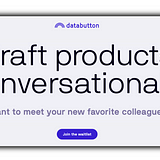
Devin, the first AI software engineer
Devin AI by Cognition Labs is one of the prime examples when it comes to AI powered software engineering.
Also, there’s other open-source alternatives such as OpenDevin, Devika, and SWE-Agent.
SWE-agent turns LM (e.g. GPT-4) into software engineering agents that can fix bugs and issues in real GitHub repositories.
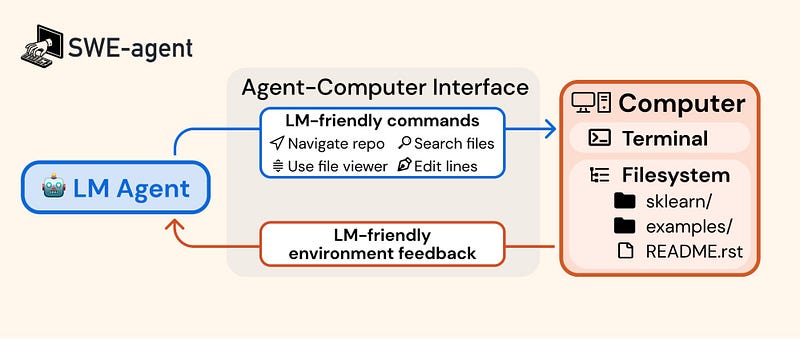
Source : https://x.com/jyangballin/status/1775114446429426069
These are software engineering agents capable of fixing bugs and issues in real GitHub repositories and more!
Devin the first AI software engineer — demo video. Credit — Cognition Labs Youtube Channel.
Now, what’s the latest state of these products and how they differ ?
I’ve a small piece about it highlighting the key comparasion as of today.
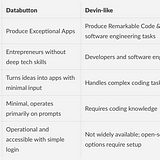
Agent Frameworks and Their Promises
Agent frameworks are definitely changing the way we use AI.
Databutton is already operational with hundreds of users actively building apps with it. We are constantly working to make this Agent more robust.
Tests with Devika and OpenDevin showed that they perform pretty well when it comes to debugging or solving specific coding tasks.
Of course like all growing software frameworks — there is significant room for improvement. With the ongoing advancements in LLMs, the future of this Autonomous Agent-powered approach appears very promising.
But I can definitely say, when it works, it feels almost magical. As Viral Shah mentions on his post —
We know that AI code generation isn’t perfect today. As an aside: what solution is perfect, really?






